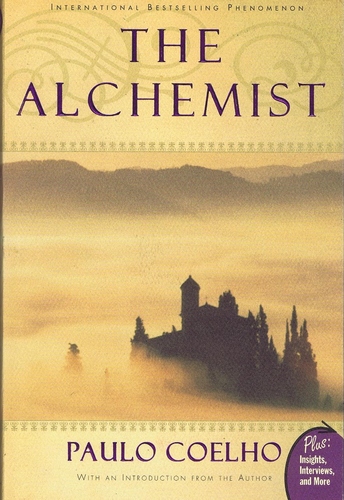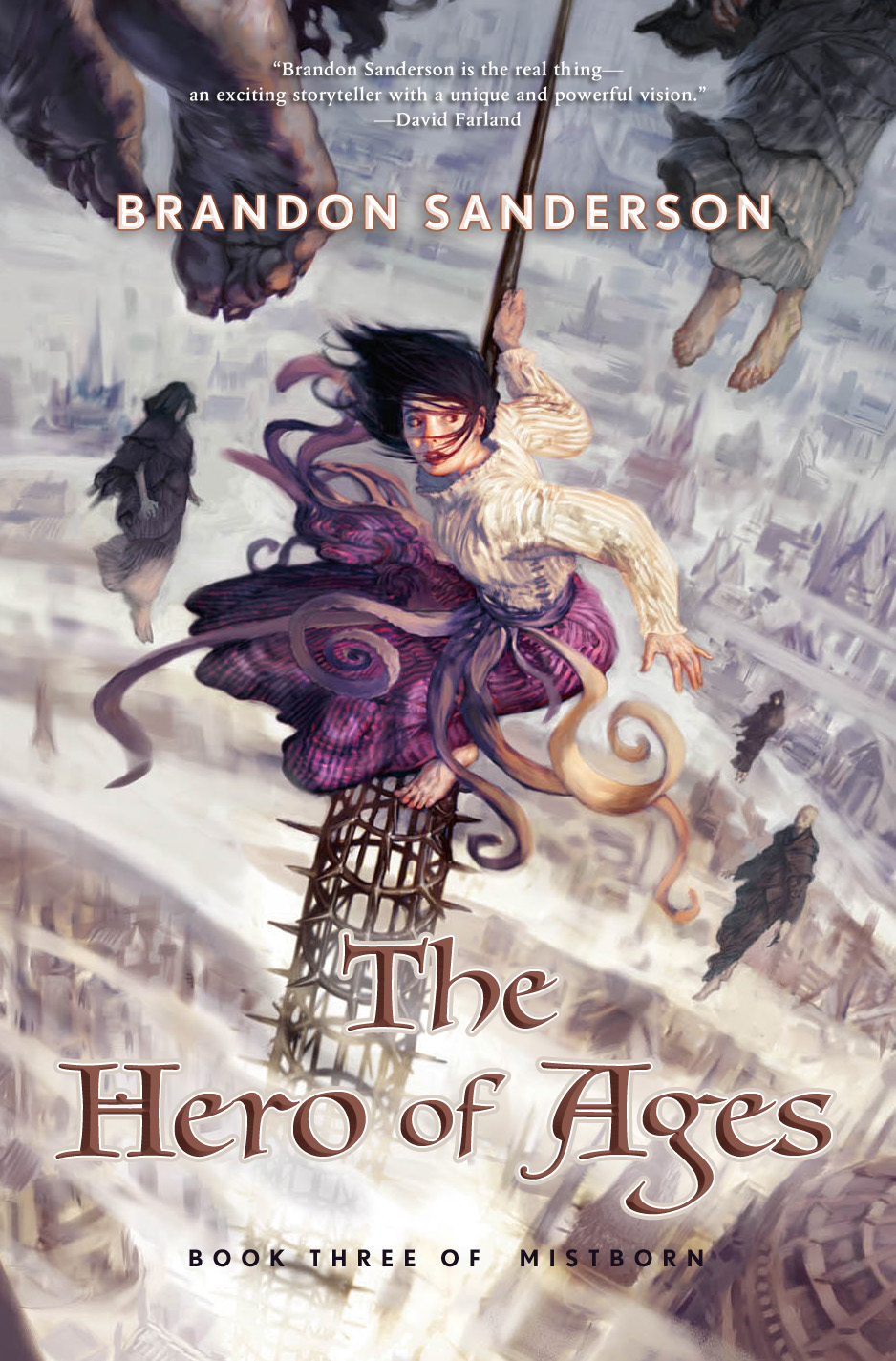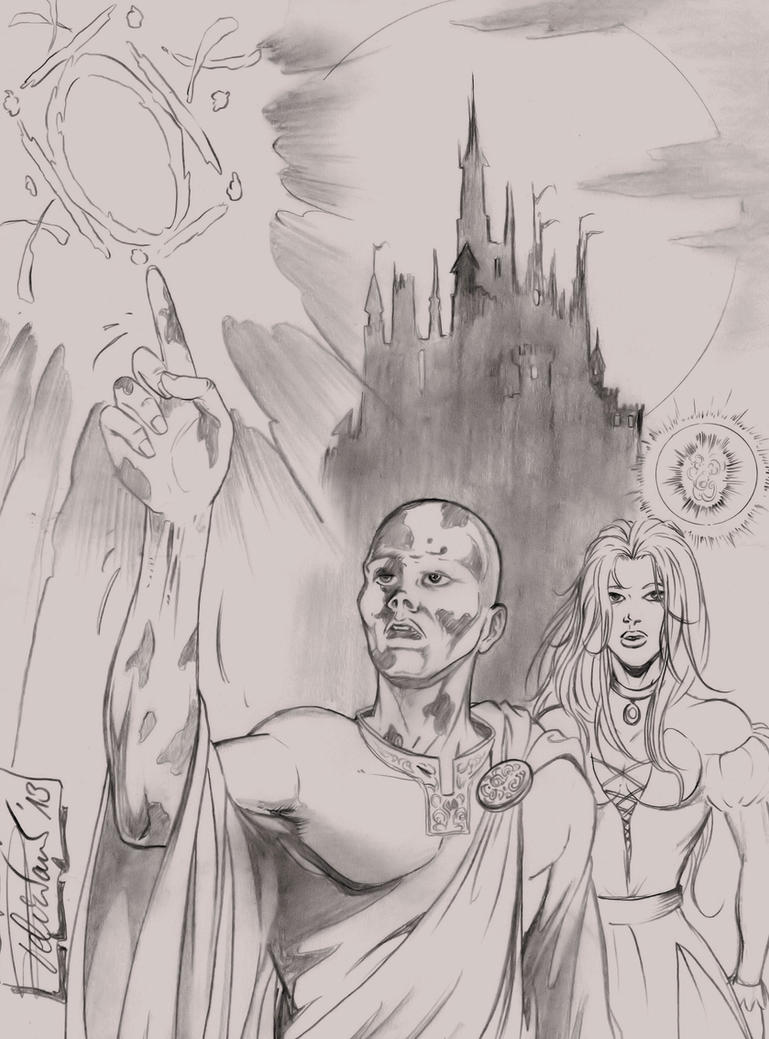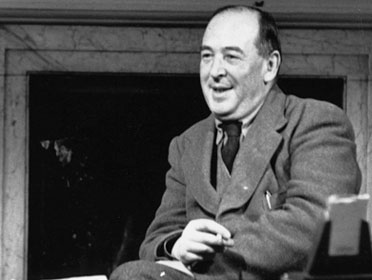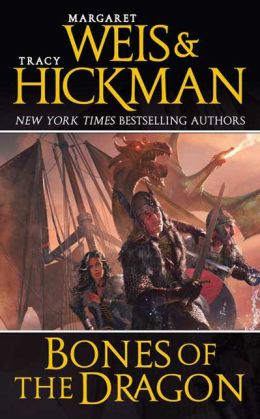The depths of my brother's closet of books produced The Alchemist by Paulo Coelho for my reading pleasure the past couple days. It was ... interesting. I'm not sure there's a lot to say about it, actually.
It's a philosophical book in the same way that The Little Prince by Antoine de Saint-Exupery (one of my all-time favorites - I actually carry a copy of it in my purse at all times) is a philosophical book. Both take place in Africa, now that I think about it.
Now, I've only read Coelho's book once, and I've read The Little Prince countless number of times, but I still think there is more to The Little Prince than there is to The Alchemist. I might be wrong. Maybe more will show up if I read it again (which I'm not planning on doing anytime soon). In comparison, The Alchemist was heavy-handed; there was little to no subtlety about its message. I'm sure some people like that. I've learned, however, that I'm a reader (and writer) who enjoys digging for deeper meaning and ideas instead of having them handed to me. I want to ask my own questions and find my own answers in the text, something The Alchemist did not seem to encourage. Not only was I not invited to ask my own questions, but I was handed answers to those questions the text forced me to ask.
I sound like I'm holding a grudge, don't I? I guess I'm terribly biased in favor of The Little Prince. I'm unrepentant, though. Sorry.
The few times when I did ask my own question, the answer was decidedly shrouded in mysticism. Like when I wondered something so simple as how the wind was talking. Talking wind is a logical jump, something Coelho is asking me to believe simply because I'm in a world of fiction. The problem is that his "Language of the World" is made up of body language and the vibes given off by emotion, and he never explains how understanding that language translates into understanding how to talk to the wind, the desert, or anything else.
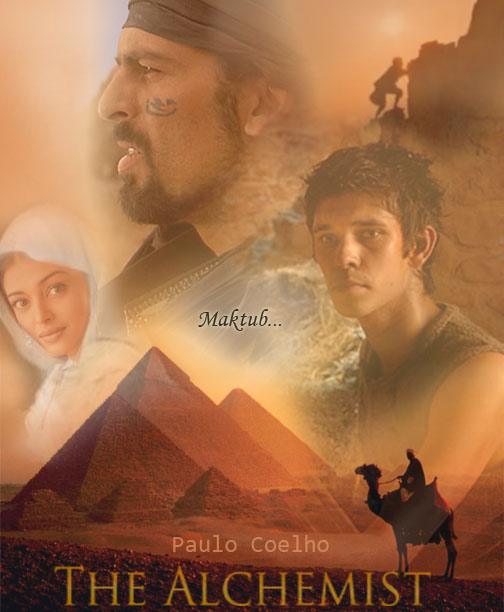 But what about the central message, Elizabeth? Surely you can set all this aside in deference to Coelho's message? ... I'll have to think about it. The logical jumps really got in the way for me. I guess I like that the ending circled around, kind of a experience-is-worth-the-trouble message. I did like the mini stories that popped up here and there, so Coelho's at least got that going for him.
But what about the central message, Elizabeth? Surely you can set all this aside in deference to Coelho's message? ... I'll have to think about it. The logical jumps really got in the way for me. I guess I like that the ending circled around, kind of a experience-is-worth-the-trouble message. I did like the mini stories that popped up here and there, so Coelho's at least got that going for him.Okay, there is one message I got and liked from The Alchemist. I just remembered it. I liked the idea of how the world and fear can get in the way of achieving one's dream, but that we need to move forward anyway.
My dream is to be a published novelist that is read. I've always wanted to write books, ever since I first learned to write. I went to college and am getting a degree that many would consider useless, all because I wanted to study and become a better writer. I started this blog because having a writer's blog makes sense to me in the long run. I'm pursuing my dream. Andrew Carnegie once said that the first third of a person's life should be spent learning, the second part working/earning money, and the third part spending all that money to benefit others. I am not as money-centered as I'm sure Carnegie was, but I love the idea of a life divided into thirds. The only problem is that I don't know when I'll die. Oh, and there's the problem that I love learning and want that third to last my entire life (hopefully not because I die that soon, but because I just never stop learning). I'm in my learning stage right now, and I'm headed in the right direction to achieve my dream. Reader, I hope you are doing likewise.

